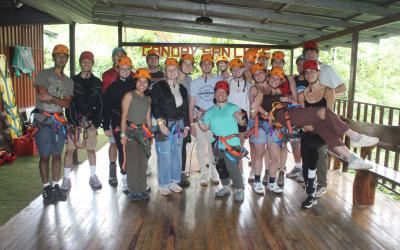Information Session on Zoom -- February 18th @ 4pm. Join us here -- https://uoregon.zoom.us/j/97696759265
This program offers an immersive experience in the study of food within Latin American history, combined with comprehensive Spanish language instruction and engaging excursions. Over four weeks, students will participate in Spanish courses tailored to all proficiency levels during the first two weeks, followed by an in-depth course on the history and cultural significance of food in Latin America, in English, in the second half. No prior Spanish knowledge is required, making the program accessible to all students.
The course explores key topics in Latin American food history, including indigenous agricultural practices, the impact of colonization on food culture, and the modern sustainability movement in Costa Rican agriculture. These topics are brought to life through hands-on activities and excursions to local farms, markets, and food production sites, including a traditional Costa Rican cooking class, a coffee tour, and visits to sustainable agriculture operations like The Ark Herb Farm & Ethnobotanical Garden and Sibo Chocolate.
Program Highlights:
- Experience Costa Rica's culinary and agricultural heritage through visits to places like Arenal Volcano, the Pacific Coast, community-based urban permaculture projects, and local organic farms.
- Two weeks of language instruction for all levels, enhancing your ability to engage with the local culture and communities.
- Delve into the rich history of food in Latin America, with a focus on cultural traditions, sustainability, and modern agricultural practices.
- Enjoy activities such as traditional Costa Rican cooking and dance classes, city tours, and living with your host family.
The Food Studies in Costa Rica program will be coordinated with the Advancing Your Academic Success: in Costa Rica, and students from both programs may take the same courses.



